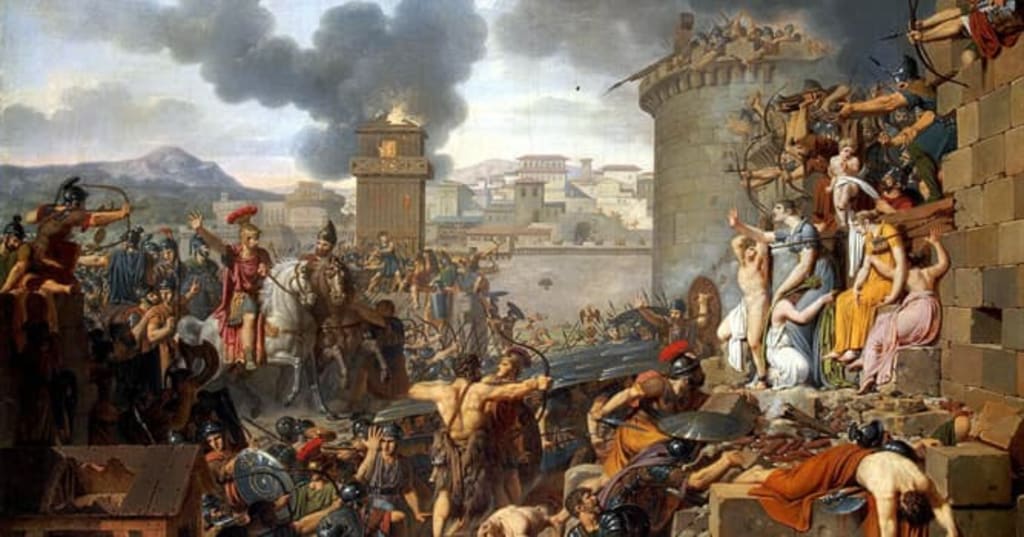The Revolt that Reshaped Rome
The Second Servile War

The Second Servile War, taking place between 104 and 100 BC, was a significant slave rebellion against the Roman Republic. Although less well-known than the Third Servile War, often associated with the iconic figure of Spartacus, the Second Servile War was one of the largest slave uprisings in the history of the Roman Empire, and it had a significant impact on the sociopolitical structure of the era.
The rebellion arose on the fertile island of Sicily, a significant source of grain for Rome. The island had become a hub for the brutal exploitation of slave labor in massive estates known as 'latifundia'. The appalling working conditions, harsh treatment, and lack of basic rights for these slaves sowed the seeds of rebellion.
Sicily had already witnessed a significant Servile War from 135-132 BC, but the poor treatment of slaves continued unabated. The spark for the Second Servile War was reportedly a Syrian slave named Salvius, who proclaimed himself king and took the name Tryphon, after a Seleucid ruler.
Salvius galvanized the slaves with his charisma and promises of freedom. Despite lacking formal military training, the slaves had the advantage of numbers and the element of surprise. They quickly seized control of several towns in central and eastern Sicily, drawing more slaves to their cause. As his power grew, Salvius organized his forces into a semblance of a regular army and fortified his positions.
Rome, embroiled in the Social War on the mainland, initially underestimated the seriousness of the revolt. Their first two punitive expeditions in 104 BC were hastily planned and poorly executed, ending in failure. In the following year, a Roman force led by Lucius Licinius Lucullus managed to score a victory over the rebels, but the victory was not decisive. The slave army, although weakened, was not eradicated.
The rebellion continued under the leadership of Athenion, a charismatic and intelligent slave who joined the revolt with his followers. Athenion and Salvius joined forces, creating a formidable front against the Roman forces. Salvius was eventually killed in a battle, leaving Athenion as the sole leader.
In the meantime, Rome was becoming increasingly alarmed at the ongoing rebellion. By 101 BC, the Romans dispatched one of their finest generals, Marcus Aquillius, to quash the rebellion. With a well-disciplined force at his command, Aquillius engaged in a series of battles with the rebel slaves. Athenion was killed in one of these battles, and without his leadership, the rebellion started to falter.
In the final phase of the war, Aquillius employed a strategy of dividing and isolating the rebels, thereby weakening their ability to mount a coordinated defense. By 100 BC, the Second Servile War was effectively over. The surviving rebels were captured and executed or re-enslaved.
While the Second Servile War ended in victory for Rome, it exposed significant flaws in the Roman socio-economic system, primarily their over-reliance on slave labor and the inhuman conditions under which the slaves lived and worked. The scale and duration of the rebellion made it clear that the status quo was not sustainable. This contributed to the process of reform that would culminate, many years later, in the late Roman Empire's shift away from large-scale slavery.
The Second Servile War also had significant political repercussions. It indirectly influenced the rise of powerful military generals in Rome, who increasingly relied on their armies' loyalty rather than the Senate's command. This eventually contributed to the erosion of the Roman Republic and the establishment of the Roman Empire under Augustus Caesar.
The Second Servile War exposed the harsh reality of slavery in the Roman Republic and the potential for destructive rebellion such conditions could engender. While the rebellion was ultimately crushed, it nonetheless left an indelible mark on Roman history and laid the foundation for significant sociopolitical changes in the years to come.
About the Creator
Mack Devlin
Writer, educator, and follower of Christ. Passionate about social justice. Living with a disability has taught me that knowledge is strength.
We are curators of emotions, explorers of the human psyche, and custodians of the narrative.






Comments
There are no comments for this story
Be the first to respond and start the conversation.